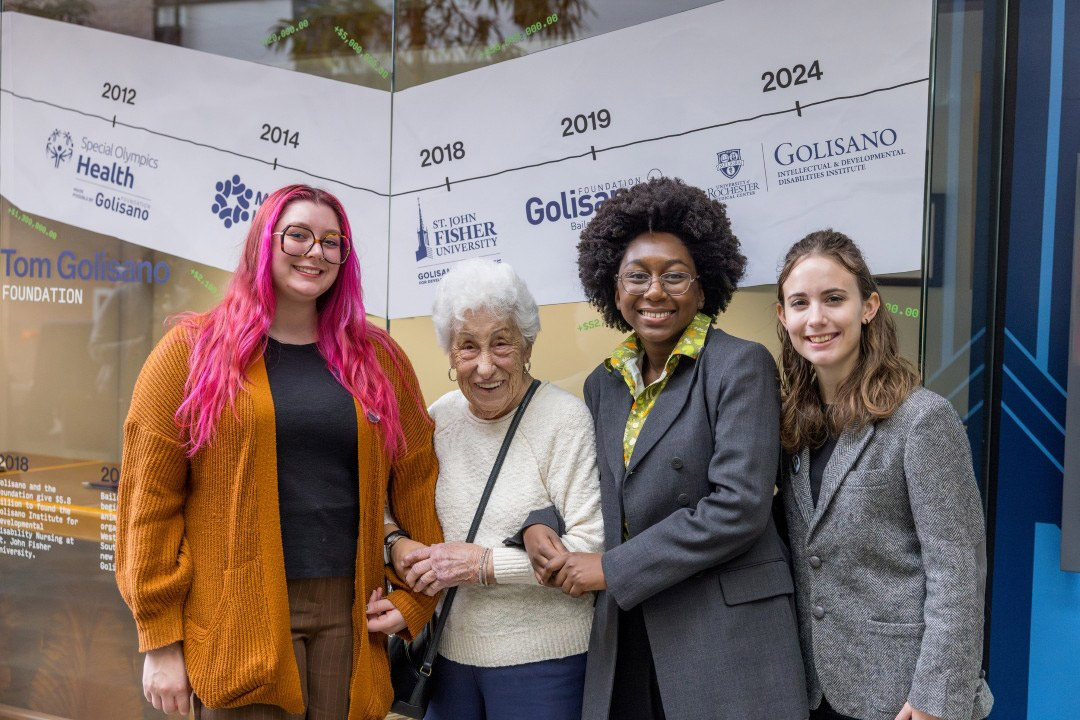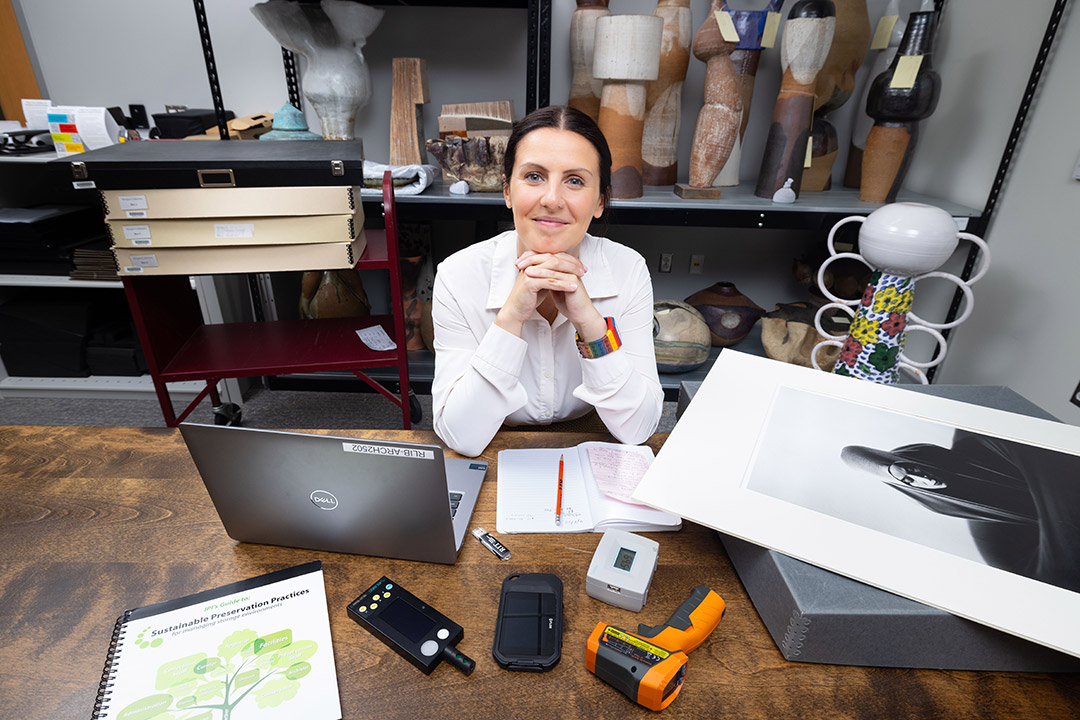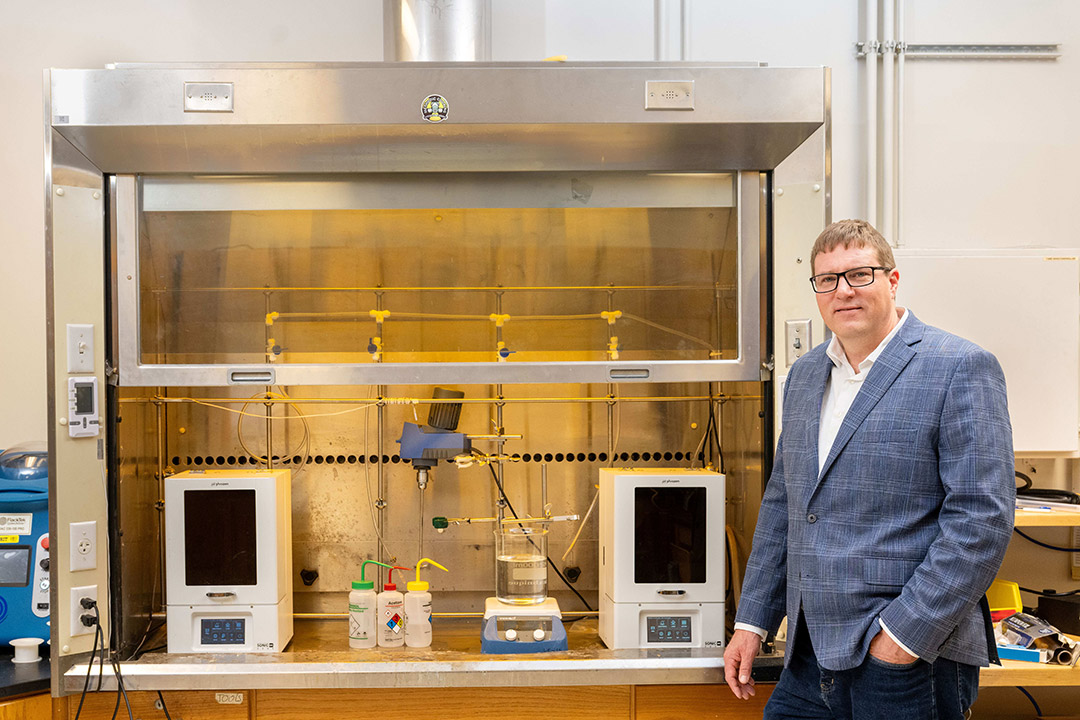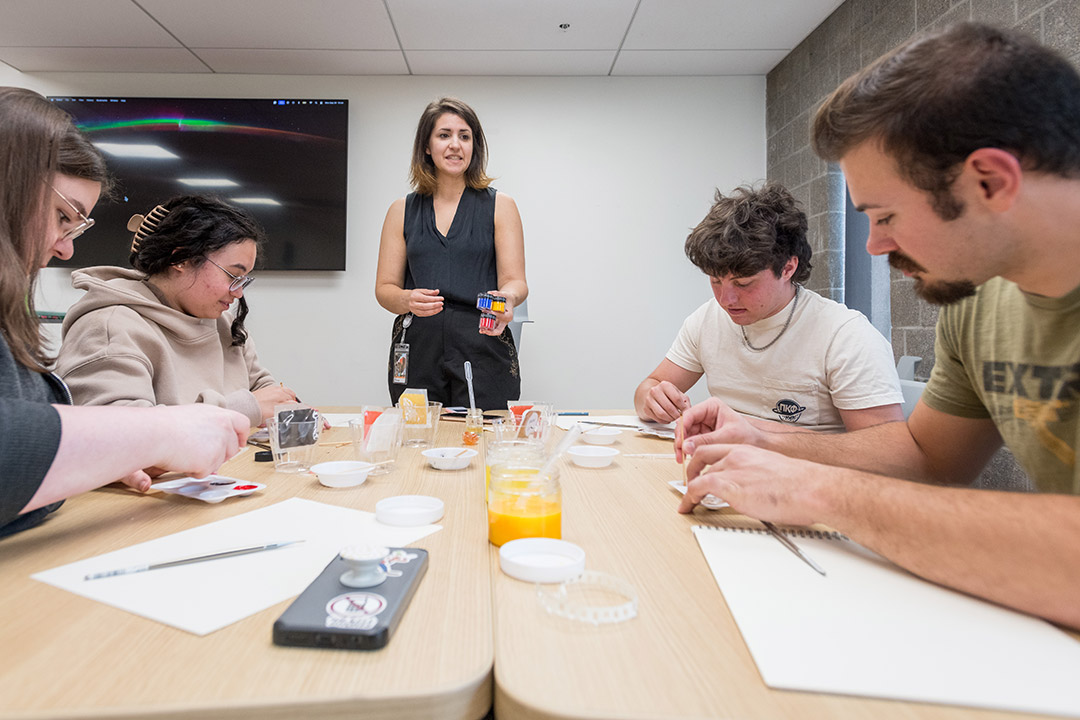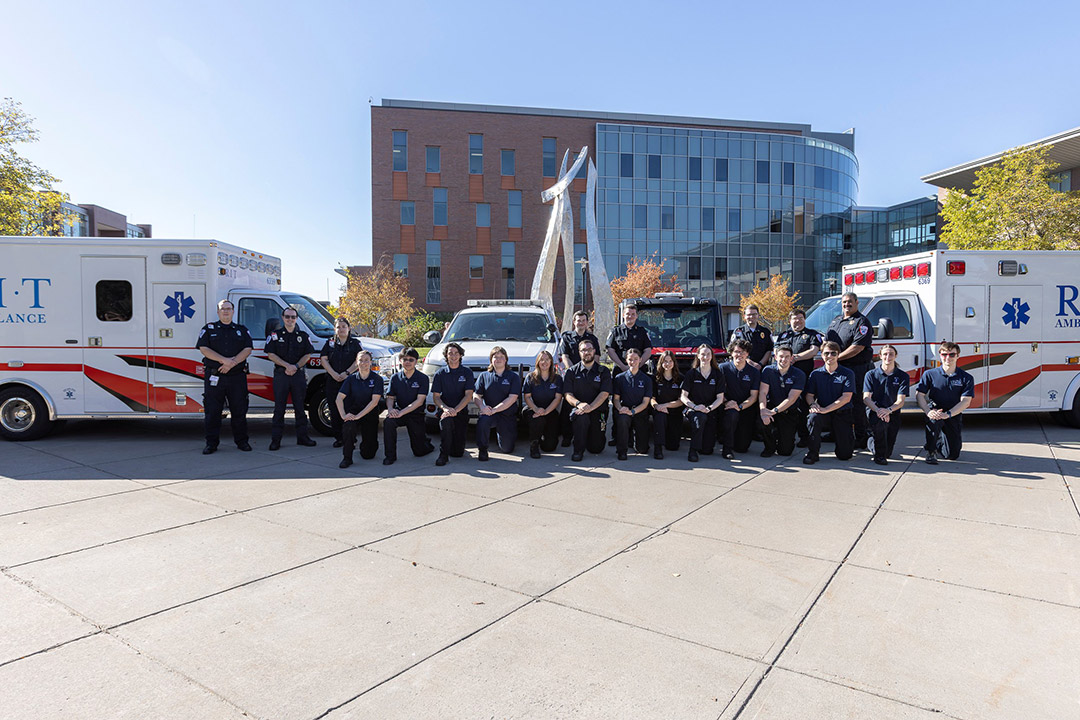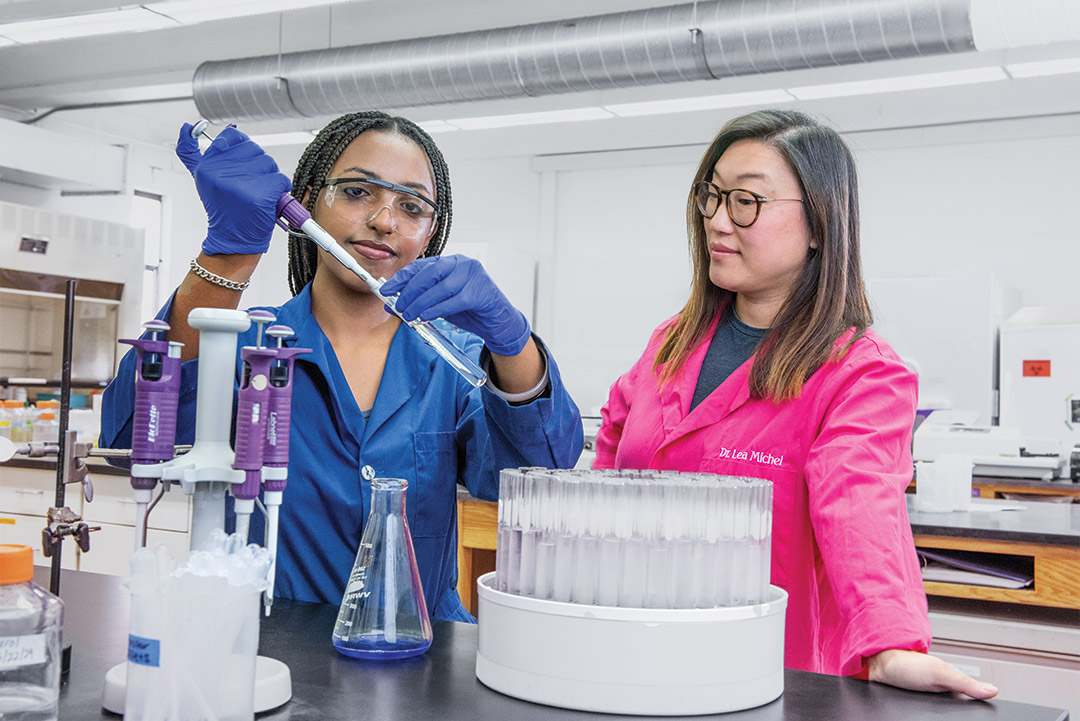
Scott Hamilton/RIT
Halley Deme, a third- year biotechnology and molecular bioscience major, left, works with Lea Michel, a professor in the School of Chemistry and Materials Science. They are trying to learn more about genetic mutations.
Getting hands-on experience in a state-of-the-art lab is something most students think will happen during graduate school. But for third-year biotechnology and molecular bioscience major Halley Deme and other RIT students, it’s an opportunity that arises early on in their academic journeys.
Deme, who is from Ethiopia, is a project leader in Professor Lea Michel’s lab, elucidating the intermolecular interactions of beta and gamma crystallins. Through this research, the goal is to understand the molecular mechanisms behind the formation of congenital cataracts, which occur in children and currently can be treated only with invasive surgery.
Record funding
RIT achieved a significant milestone by receiving nearly $103 million in sponsored research awards during the past fiscal year, surpassing a key goal in the strategic plan a year ahead of schedule.
This research combines Deme’s interest in both chemistry and biology and gives her early experience in a lab environment. Deme is part of RIT’s Collegiate Science and Technology Entry Program (CSTEP), a New York state grant-funded initiative for African American, Latino American, Native American, or low-income students.
CSTEP offers services and funding that help students in science, technology, engineering, math, and some business majors to achieve academic and professional goals.
“When I tell my friends outside of RIT what research I am doing, they tell me it’s a big deal,” said Deme. “It’s very research intensive here, so you sometimes forget it is a really cool opportunity to get to do research at the graduate level as an undergraduate. I’m very grateful for that.”
Becoming a student-centered research university is something RIT continually works toward, and it was one of the cornerstones of the 2025 Strategic Plan.
Growth in this area is evident by increases in students presenting at the Undergraduate Research Symposium, the number of students receiving the Undergraduate Research Scholars Award, and annual increases in research funding and grants across campus.
“Research adds value to an under- graduate education by providing experiential hands-on opportunities that enable students to develop cutting-edge skills
that make them sought after in the workplace. In addition, sponsored research funding provides opportunities for students to train using the latest real-world applications and equipment,” said Ryne Raffaelle, vice president for Research and associate provost. “RIT has grown steadily in undergraduate research, which denotes a healthy university.”
Michel enjoys working with under- graduate students in her lab and recognizes the importance of gaining research experience early on. It helps students when they move forward in their careers. “It engages them right away,” said Michel.
“The thing that sets students apart when they’ve done undergraduate research is that they’re not afraid to make mistakes. In the lab, we’re not focused on getting the right answer, because often we don’t know what the right answer is. They understand failing is part of the process and it’s a good thing because we learn from it.”








